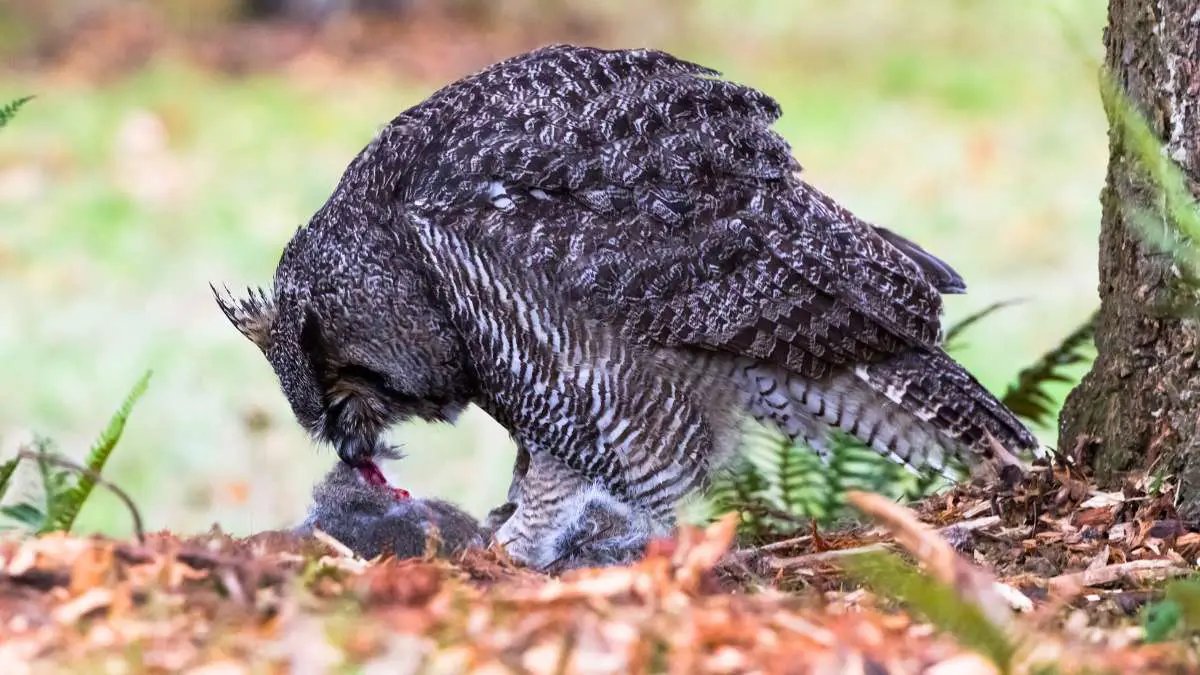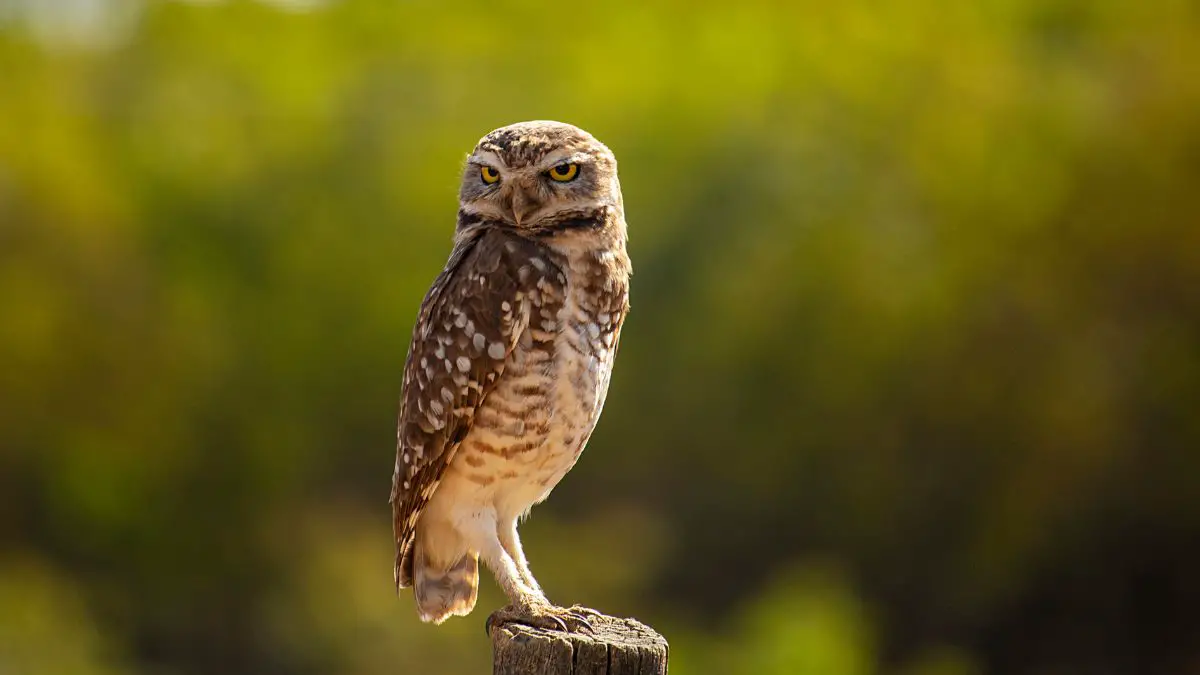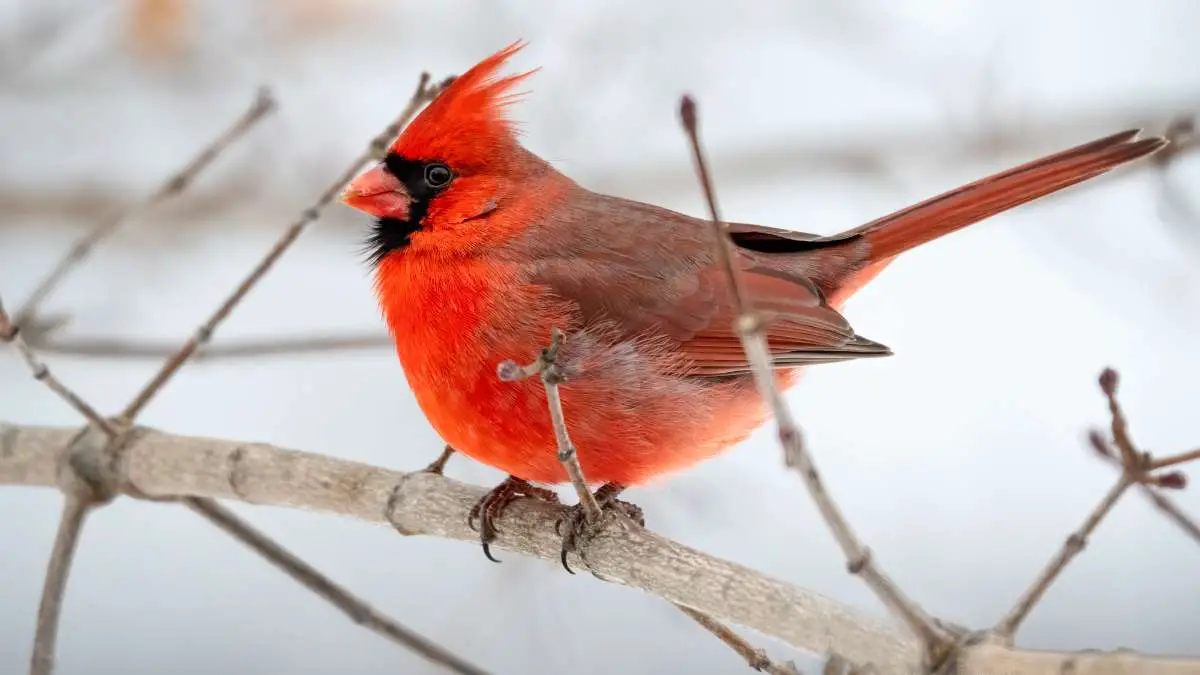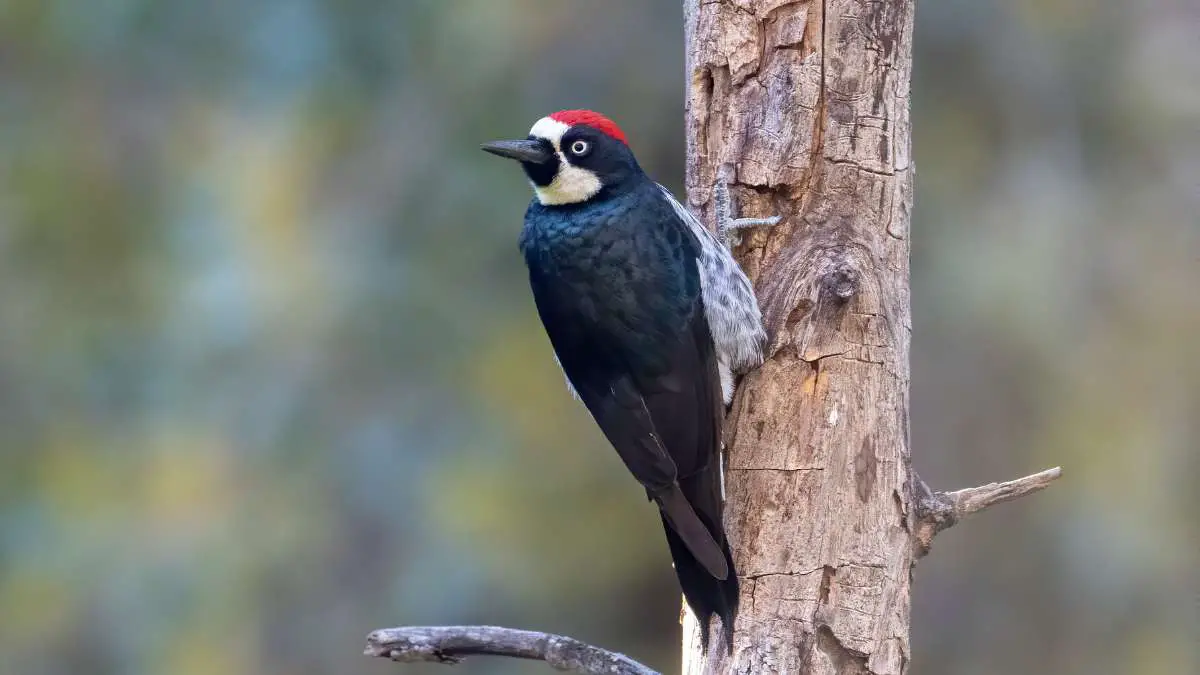Owls are fascinating birds known for their nocturnal habits and exceptional hunting skills. When it comes to their diet, they are famous for controlling the rodent population. But, do owls eat squirrels as well? YES, owls do eat squirrels.
Squirrels, being small mammals, are on the menu for many owl species. Owls are expert hunters, using their sharp talons and keen eyesight to catch prey, and squirrels make for a tasty and nutritious meal.
It’s important to note that not all owl species have the same diet, as some may prefer other types of prey.
Nonetheless, the owl-squirrel interaction is a natural part of the predator-prey relationship in the wild, showcasing the remarkable ways in which different species coexist in nature.

The Predatory Nature of Owls
Owls possess a predatory prowess that’s nothing short of fascinating. Their unique characteristics and hunting adaptations make them efficient nocturnal hunters.
With keen eyesight, silent flight and exceptional hearing, owls are well-equipped for the stealthy pursuit of their prey. Their feathers are designed to remove the sound from micro level air turbulence, allowing them to approach unsuspecting creatures with almost eerie silence.
Beyond their abilities, owls play a crucial role in controlling rodent populations. These feathered hunters are nature’s pest control, swooping down on mice and other rodents that might otherwise overrun ecosystems.
It’s a irreplaceable relationship where owls maintain a balance in the natural order, keeping the numbers of small mammals in check.
Understanding the link between owl behavior and their dietary habits is key to unraveling the mystery of whether owls dine on squirrels. The very essence of their predatory nature hinges on a delicate interplay of instincts and adaptability.
Owl Species and Their Varied Diets
Owls come in a delightful array of species, each with its own unique dietary preferences. From the petite Eastern Screech Owl to the majestic Great Horned Owl, these raptors exhibit fascinating variations in their culinary choices.
Understanding owl diets requires a closer look at the distinct preferences that define each species, highlighting the importance of tailoring our analysis to the specific owl in question.
Squirrels in the Owl Diet
When it comes to the owl’s menu, squirrels find themselves on the gastronomic radar. Numerous owl species have been observed including squirrels in their diet.
Scientific studies provide valuable insights, supporting the notion that these bushy-tailed creatures are not off the table for certain owl species.
Instances of owls preying on squirrels underline the dynamic nature of their diet, debunking any notion of a one-size-fits-all approach to owl feeding habits.
Factors Influencing Owl Diets
Geographic location emerges as a significant influencer in shaping owl diets. The prey availability in a specific region determines the owl’s menu, showcasing the adaptability of these birds to their surroundings.
Seasonal variations add another layer to this dietary tapestry, with owls adjusting their prey selection based on environmental changes. Because in the tropics you won’t see an Owl feeding on squirrels as we can not find seasonal changes.
Ecological factors further play a role in molding owl dietary habits, highlighting the intricate dance between these birds and their ecosystems.
Owl Hunting Techniques
Owls employ a fascinating array of strategies when it comes to hunting. Their unique adaptations make them silent and precise predators, perfectly suited for the hunt.
One key aspect is their ability to fly silently, thanks to specialized feathers that muffle the sound of their wings. This silent flight allows them to approach their prey undetected, turning the night into their hunting ground.
Squirrel Adaptations and Owl Predation
Squirrels, with their agility and speed, seem like tricky targets. However, owls have developed techniques to overcome their prey’s defenses.
Owls are known for their exceptional vision and hearing, allowing them to spot and lock onto their target with uncanny precision. Squirrels, on the other hand, have evolved various defenses against owls, such as keen eyesight and a heightened sense of danger.
Despite the squirrels’ efforts, owls often succeed in predation. The owls’ hunting techniques, combined with their evolutionary adaptations, create a deadly combination.
Instances of successful owl predation on squirrels reveal the effectiveness of the owls’ silent flight and calculated strikes.
This ongoing evolutionary arms race between owls and squirrels highlights the intricate balance of nature, where predators and prey continually adapt to each other’s strategies.
The Ecological Balance
Owls, often the unsung heroes of our ecosystems, play a crucial role in maintaining a delicate balance in nature. These wise, nocturnal hunters contribute significantly to the health of our ecosystems.
The relationship between owls and their prey, including squirrels, is a key factor in this ecological harmony.
Owls act as natural regulators, controlling the population of various prey species. But when it comes to squirrels, there are other diurnal predators which contribute more to controlling the squirrel population in nature. .
Owls step in as nature’s pest control, keeping the numbers in check mainly for nocturnal small mammals and insects. Their keen hunting abilities help manage the delicate balance between predator and prey.
Preserving owl habitats is paramount for sustaining this ecological stability. Deforestation and habitat loss not only threaten the owl populations but also disrupt the web of relationships within ecosystems.
By safeguarding owl habitats, we contribute to the overall health of our environment. It’s a reminder that every creature, from the smallest rodent to the majestic owl, plays a vital role in the grand tapestry of nature.
Conclusion
In wrapping up our exploration into the intriguing world of owl diets and the question, “Do owls eat squirrels?” It’s clear that these nocturnal predators are more than simple hunters. So, yes they do when they see the right opportunity.
Owls, with their diverse diets and unique hunting techniques, contribute significantly to maintaining ecological harmony.
Understanding the nuanced dynamics of owl-squirrel interactions underscores the complexity of nature’s delicate balance.
As we marvel at the silent wings of owls and the resilience of squirrels, let’s cherish the role these creatures play in our ecosystems.
Preserving their habitats ensures a future where owls continue their essential duty in the grand orchestration of nature. So try to help with conservation activities and projects that focus more on preserving the habitats of these magnificent birds.
You may also like:




